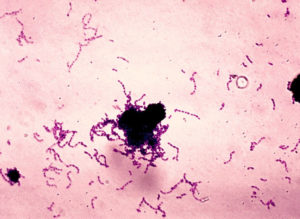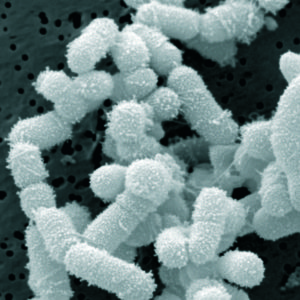 This study gives hope to those with type 2 diabetes that it may be reversible - even if they've had it for up to 10 years. Researchers demonstrated that in 40% of the 30 study participants on a very low calorie diet (VLCD) of 600 to 700 calories daily for 8 weeks achieved remission of their diabetes for as long as 6 months (the length of the study). They returned to nondiabetic blood glucose levels, had improvement in acute insulin secretion, normalization of liver fat content and insulin sensitivity, and were off all diabetes medicine. The average weight loss was 31 pounds and they maintained this weight loss over the length of the study, even though most remained obese or overweight. The researchers mention that there is already evidence that diabetes reversal lasts for at least 3 years, as long as weight is not regained.
This study gives hope to those with type 2 diabetes that it may be reversible - even if they've had it for up to 10 years. Researchers demonstrated that in 40% of the 30 study participants on a very low calorie diet (VLCD) of 600 to 700 calories daily for 8 weeks achieved remission of their diabetes for as long as 6 months (the length of the study). They returned to nondiabetic blood glucose levels, had improvement in acute insulin secretion, normalization of liver fat content and insulin sensitivity, and were off all diabetes medicine. The average weight loss was 31 pounds and they maintained this weight loss over the length of the study, even though most remained obese or overweight. The researchers mention that there is already evidence that diabetes reversal lasts for at least 3 years, as long as weight is not regained.
What they did: A) 3 diet shakes per day and 240 grams (1 cup or 1/2 pound) of non-starchy vegetables taking in between 600 and 700 calories per day for 8 weeks, B) volunteers then gradually returned to eating normal food over the next two weeks with very careful instruction on how much to eat, C) volunteers were seen once a month and supported with an individualized weight maintenance program over the next 6 months, D) to keep weight steady after the weight loss, they were eating around one third less than before the study.
Overall, 12 patients who had had diabetes for less than 10 years reversed their condition, and 6 months later they remained diabetes free. In fact, after 6 months a thirteenth patient had reversed their diabetes. The 30 people with diabetes in the study had it between 0.5 and 23 years. The best results were in those who had it for a shorter time. Thus, while 40% of study participants overall reversed their diabetes, 60% of those with short-duration of diabetes (under 10 years) reversed their diabetes. These are fantastic results!
The researchers say that the study results "...supports our theory of a Personal Fat Threshold. If a person gains more weight than they personally can tolerate, then diabetes is triggered, but if they then lose that amount of weight then they go back to normal. Individuals vary in how much weight they can carry without it seeming to affect their metabolism -- don't forget that 70% of severely obese people do not have diabetes." The researchers say type 2 diabetes can now be understood to be a metabolic syndrome that is potentially reversible by substantial weight loss, and that this is an important paradigm shift. They also comment that studies and population data indicate that type 2 diabetes is solely a response to overnutrition.
Excerpts from Diabetes Care: Very Low-Calorie Diet and 6 Months of Weight Stability in Type 2 Diabetes: Pathophysiological Changes in Responders and Nonresponders.
Type 2 diabetes mellitus (T2DM) is generally regarded as an irreversible chronic condition. Because a very low-calorie diet (VLCD) can bring about acute return to normal glucose control in some people with T2DM, this study tested the potential durability of this normalization. The underlying mechanisms were defined.
People with a T2DM duration of 0.5-23 years (n = 30) followed a VLCD for 8 weeks. All oral agents or insulins were stopped at baseline.....Weight fell (98.0 ± 2.6 to 83.8 ± 2.4 kg) and remained stable over 6 months (84.7 ± 2.5 kg). Twelve of 30 participants achieved fasting plasma glucose <7 mmol/L after return to isocaloric diet (responders), and 13 of 30 after 6 months. Responders had a shorter duration of diabetes and a higher initial fasting plasma insulin level....A robust and sustainable weight loss program achieved continuing remission of diabetes for at least 6 months in the 40% who responded to a VLCD by achieving fasting plasma glucose of <7 mmol/L. T2DM is a potentially reversible condition.
However, restoration of normal glucose control is possible after weight loss in some individuals with T2DM . Although most commonly seen after bariatric surgery, reversal of diabetes can occur after any sharp decrease in calorie intake. In short-duration T2DM, fasting plasma glucose becomes normal within days on a very-low-calorie diet (VLCD) because of a rapid decrease in liver fat and return of normal hepatic insulin sensitivity, and normal b-cell function returns over 8 weeks.
This prospective, longitudinal, single center study comprised three phases: VLCD for 8 weeks; a stepped return to isocaloric intake of normal food over 2 weeks; and a structured, individualized weight maintenance program over 6 months. Assessments were carried out before the VLCD, after return to isocaloric eating, and at the end of the 6-month follow-up. The primary outcome measure was fasting blood glucose at 6 months in the group achieving nondiabetic levels after VLCD and return to normal eating, and the primary comparison was the change between post– weight loss and 6 months in responders.
We demonstrate that in 40% of study participants who responded to a VLCD by achieving fasting plasma glucose ,7 mmol/L, remission of T2DM lasts for at least 6 months. Return to nondiabetic blood glucose levels was characterized by improvement in acute insulin secretion, and this was sustained while off all hypoglycemic agents. Hepatic insulin sensitivity improved in both responders and nonresponders....Weight loss brought about normalization of liver fat content and insulin sensitivity in both responders and nonresponders. Of note, no redistribution of fat was seen to the liver from the subcutaneous or other deposits over 6 months of weight stability, even though the participants remained obese or overweight.
The present demonstration of ongoing reversal of T2DM (in 41% of the cohort overall or 60% of individuals with short-duration diabetes) is reflected in population data that indicate that T2DM is solely a response to overnutrition. Ready access to low-cost food is uniformly accompanied by high rates of T2DM, and when food supply becomes limited for any reason, the prevalence of T2DM falls.....The present data confirm reversal of T2DM for at least 6 months in those who achieve nondiabetic plasma glucose levels after VLCD. However, the critical question for health-care delivery is whether truly long-term reversal of T2DM can be achieved in primary care.
The likelihood of VLCD responders remaining free of diabetes indefinitely must be considered. After media coverage of our earlier study, many people with T2DM reversed their own diabetes (37). For such motivated individuals who avoid weight regain, maintenance of normoglycemia for up to 3 years has been reported.... Because progression of longterm complications of diabetes relates to ambient blood glucose control, durable reversal of diabetes would be expected to be associated with longterm health. T2DM can now be understood to be a metabolic syndrome potentially reversible by substantial weight loss, and this is an important paradigm shift.
![]() Some people have nasal bacteria - Staphylococcus lugdunensis, that kills other disease causing bacteria such as Staphylococcus aureus (including strains of MRSA) and Enterococcus. This is because S. lugdunensis produces a molecule (lugdunin) that acts as an antibiotic. It is thought that 10% of people naturally carry S. lugdunensis in their nasal passages. Will this lead to a new class of antibiotics or to probiotics of the future? Could it help in treating sinusitis? Stay tuned... From Science News:
Some people have nasal bacteria - Staphylococcus lugdunensis, that kills other disease causing bacteria such as Staphylococcus aureus (including strains of MRSA) and Enterococcus. This is because S. lugdunensis produces a molecule (lugdunin) that acts as an antibiotic. It is thought that 10% of people naturally carry S. lugdunensis in their nasal passages. Will this lead to a new class of antibiotics or to probiotics of the future? Could it help in treating sinusitis? Stay tuned... From Science News: A compound secreted by the nose-dwelling bacterium Staphylococcus lugdunensis may fight antibiotic-resistant strains of bacteria such as MRSA (pink). CREDIT: NIAID, NIH/WIKIMEDIA COMMONS
A compound secreted by the nose-dwelling bacterium Staphylococcus lugdunensis may fight antibiotic-resistant strains of bacteria such as MRSA (pink). CREDIT: NIAID, NIH/WIKIMEDIA COMMONS
 Research shows that Streptococcus mutans, the bacteria that is a main cause of tooth decay or dental caries, is passed from mother to child, and also between nonrelative children. Any interaction that involves
Research shows that Streptococcus mutans, the bacteria that is a main cause of tooth decay or dental caries, is passed from mother to child, and also between nonrelative children. Any interaction that involves  A new study followed adults with meniscus tears (in the knee), who were randomly assigned to either exercise only or meniscus repair surgery (arthroscopic partial meniscectomy) only. They found that after 2 years there was no difference between those who just received exercise therapy compared to those who just received meniscus repair surgery. About 19% of the exercise only group decided to get surgery at some point, but the rest stayed in the exercise only group.
A new study followed adults with meniscus tears (in the knee), who were randomly assigned to either exercise only or meniscus repair surgery (arthroscopic partial meniscectomy) only. They found that after 2 years there was no difference between those who just received exercise therapy compared to those who just received meniscus repair surgery. About 19% of the exercise only group decided to get surgery at some point, but the rest stayed in the exercise only group. Everyone lifting light weights during exercise workouts will be heartened by a study that found that lifting
Everyone lifting light weights during exercise workouts will be heartened by a study that found that lifting 
 Another excellent reason to lose weight if you are overweight or obese: losing weight (through diet or through combined diet and exercise) significantly lowers levels of proteins in the blood that help cancerous tumors grow. In other words, reducing weight could turn out to be a cancer prevention method in overweight and obese persons. Exercise alone did not lower the levels of these cancer-associated proteins.
Another excellent reason to lose weight if you are overweight or obese: losing weight (through diet or through combined diet and exercise) significantly lowers levels of proteins in the blood that help cancerous tumors grow. In other words, reducing weight could turn out to be a cancer prevention method in overweight and obese persons. Exercise alone did not lower the levels of these cancer-associated proteins. Yup, according to a new mega-study, being overweight or obese is linked to higher risk of dying prematurely than being normal weight. And the more you weigh, the greater the risk.
Yup, according to a new mega-study, being overweight or obese is linked to higher risk of dying prematurely than being normal weight. And the more you weigh, the greater the risk.